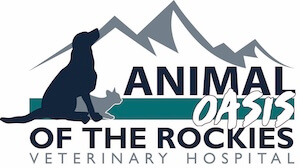Dr. Stacey Huber
Animal Oasis Of The Rockies Veterinary Hospital
When would my dog need anesthesia?
Anesthesia is an important part of medical procedures when we're doing something like spays and neuters. Those are elective procedures. We also have dogs and cats that require anesthesia for dental procedures, and sometimes they'll come in on an emergency where they require surgery and that requires anesthesia as well.
What are the different types of anesthesia?
So when we're talking about anesthesia, we start with pre-anesthesia, which is basically giving the dog some medication to help him sleepy, becomes very sleepy, and then once he's sleepy we induce him with an induction protocol, usually in the form of something called propofol. After that, he is connected to a tube and then the dog will breathe anesthetic inhalation medications and then there's also sedation that goes along with anesthesia.
Are particular dog breeds more sensitive to anesthesia?
Yes, as a matter of fact, there are some dogs out there that we worry about. Some of them have sensitivities to certain types of medications, and that would be something like an MDR-1 dog, those are usually some of the herding dogs. There are also some sight hounds like greyhounds and things like that that are sensitive to anesthesia.
What do I need to know before my dog goes for an anesthetic procedure?
So we want to make sure they're healthy, so we usually do a pre-anesthetic exam. We will do some blood work prior to the procedure as well to make sure that their liver and kidney function and all of that looks good. Then we also do a full evaluation with the dog and again make sure that they're nice and healthy, that they have a good, strong heart, and that all of their examination parameters are normal. We also recommend before they come in that they are fasted. Usually just food, they're usually allowed to have some water before the procedure.
What are some possible complications of anesthesia that my dog could experience?
So with anesthesia, there's always a risk, right, and so we're just very thorough in our exam and our pre-anesthetic blood work, making sure that they're nice and healthy. If they do have a complication sometimes it can be a little bit of a low heart rate or some issues with blood pressure, but we assure that the patients are on all of the monitors that are necessary. We also have a technician monitoring the procedure the entire time.
What monitoring will be done by the veterinarian to ensure my dog is safe while undergoing anesthesia?
Sure, Lisa, so we use very high-end monitoring equipment. It includes blood pressure monitoring, it monitors the heart, the electrical signal of the heart, and also sort of their carbon dioxide and oxygen saturation levels. We also have their body temperature, we keep them on a heated surgical table as well as a hot air blanket.
What do I need to watch for at home after my dog undergoes anesthesia?
So when they go under anesthesia, they're usually a little groggy when they come home, so we usually recommend that you keep them in a nice quiet place. You want to make sure that their gum color is nice and pink and that they're eating and drinking and going to the bathroom normally.
If you have any other questions, please give us a call at (303) 900-7765. You can also email us at [email protected] and we will get back to you as soon as we are able. Don't forget to follow us on social media: Facebook and Instagram
